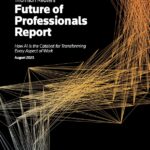
No License To Try
//
 I have always been a fan of long-running patent battles, especially when they involve two combatants with the resources and stamina to push the patent system to its limits. One group of cases that meets those criteria is the ongoing dispute between VLSI and Intel, which I addressed on these pages just over a month ago. In that column, I addressed the latest federal circuit decision remanding the parties back to West Texas for a do-over damages trial. While we can expect more headlines in the future arising out of the Texas escapades between the parties, significant activity has also occurred in other jurisdictions where the parties have been embroiled in no-holds-barred patent litigation. In fact, there was a recent ruling out of the Northern District of California in VLSI’s first-filed case against Intel, which dates back to 2017. That date serves as a potent reminder that these parties have been at this for quite a while now.
I have always been a fan of long-running patent battles, especially when they involve two combatants with the resources and stamina to push the patent system to its limits. One group of cases that meets those criteria is the ongoing dispute between VLSI and Intel, which I addressed on these pages just over a month ago. In that column, I addressed the latest federal circuit decision remanding the parties back to West Texas for a do-over damages trial. While we can expect more headlines in the future arising out of the Texas escapades between the parties, significant activity has also occurred in other jurisdictions where the parties have been embroiled in no-holds-barred patent litigation. In fact, there was a recent ruling out of the Northern District of California in VLSI’s first-filed case against Intel, which dates back to 2017. That date serves as a potent reminder that these parties have been at this for quite a while now.
A full review of the docket and its twists and turns in the past six years would take at least a month of columns. For purposes of this column, however, it is fine to start from the end, with a look at the state of play between the parties as the calendar started to read 2024. By the turn of this year, Intel had secured summary judgment in its favor on two of the four VLSI patents still active in the case. And VLSI decided to grant Intel “an unconditional covenant not to sue Intel for infringement of the remaining two Asserted Patents.” A trial in the case had been scheduled for March 2024, but after summary judgment and VLSI’s dismissal of its claims as to the two patents that survived, all that was left for trial was Intel’s affirmative defense that it already is licensed to all of VLSI’s patents.
googletag.cmd.push( function() { // Display ad. googletag.display( "div-id-for-top-300x250" ); });That defense centers on a license that Intel had entered into with a well-known patent plaintiff called Finjan, which was subsequently acquired by Fortress, the owner of VLSI. (I am simplifying the complicated web of entities for comprehension here — the main point is that Intel thinks its Finjan license runs to VLSI.) Intel pressed that defense on summary judgment in the NDCA action, but was unsuccessful, partly because the court found questions of fact for a jury to decide with respect to the actual corporate relationships between Finjan, Fortress, and VLSI. Unsurprisingly, Intel wanted to try the issue to the jury in the upcoming March 2024 trial, which would represent its earliest opportunity to do so across the web of pending VLSI cases it is defending.
 Sponsored The Solo & Small Firm Compensation Report Is Here! More than 1,000 small firm lawyers provide a glimpse into their pay. From iManage and Above The Law
Sponsored The Solo & Small Firm Compensation Report Is Here! More than 1,000 small firm lawyers provide a glimpse into their pay. From iManage and Above The Law Intel’s attempt to move forward with its license defense at the March trial was rebuffed by the court, however, in a decision released on January 24, 2024. Critical to the court’s decision was the fact that Intel’s license defense was only in the case as an affirmative defense and not as a counterclaim. As a result, the court analyzed whether it still retained jurisdiction over Intel’s affirmative defense, where there were no pending VLSI infringement claims still at issue. It concluded that it did not, as Intel failed to “identify a single case in which any court has followed its proposed course of action: to proceed to a jury trial on an affirmative defense to claims that are no longer live.” This was true even though VLSI intended to appeal the summary judgment finding of no infringement as to two of the asserted patents. Or that Intel intended to press a motion for attorney’s fees if it was able to secure its win on appeal. Accordingly, the court found Intel’s license defense moot and denied Intel’s motion to have that defense tried to a jury in the case’s current procedural posture.
Despite the finding that its affirmative defense was moot, there was some saving grace in the court’s order for Intel, with the court denying VLSI’s request that “Intel may not now seek to amend its answer to assert a new counterclaim long after the deadline has run[.]” In other words, the court indicated that it would entertain a motion from Intel to amend its answer and counterclaims, ostensibly to add its license defense as a full counterclaim, as opposed to just an affirmative defense. And Intel filed that motion just two days after the court’s ruling on the trial, along with a request for expedited handling of its motion — a request aimed at trying to maintain the March 2024 date as a viable trial date for consideration of Intel’s license counterclaim, assuming it was allowed into the case by the court. In response, the court ordered VLSI to respond to Intel’s request for expedited briefing by the date that this column will run.
googletag.cmd.push( function() { // Display ad. googletag.display( "div-id-for-middle-300x250" ); }); googletag.cmd.push( function() { // Display ad. googletag.display( "div-id-for-storycontent-440x100" ); }); googletag.cmd.push( function() { // Display ad. googletag.display( "div-id-for-in-story-youtube-1x1" ); });Ultimately, a material chance remains that Intel’s license defense will be placed in front of a Northern California jury after all, even though Intel faces some procedural hurdles to earn a ticket to that event. If Intel is able to get permission to add its license defense as a counterclaim, then the door could be opened to the court allowing it to go to trial in short order — perhaps even under the current March 2024 trial setting. We can assume that Intel much prefers its license defense considered by a NDCA jury over a West Texas jury, so it is easy to understand why Intel continues to try to keep the NDCA case alive until that happens. It will be very interesting to see whether Intel will be successful in getting its license counterclaim into the case, six years after the case was first filed. For now, the court has told Intel it has no license to try, but that might change very soon.
Please feel free to send comments or questions to me at [email protected] or via Twitter: @gkroub. Any topic suggestions or thoughts are most welcome.
Sponsored Sponsored The Future Of Professionals Report: How AI Is The Catalyst For Transforming Every Aspect Of Work 1,200 professionals weigh in on fulfilling the promise of artificial intelligence. From THOMSON REUTERS AND ABOVE THE LAW
Sponsored The Future Of Professionals Report: How AI Is The Catalyst For Transforming Every Aspect Of Work 1,200 professionals weigh in on fulfilling the promise of artificial intelligence. From THOMSON REUTERS AND ABOVE THE LAW  Sponsored How This Law Firm Converts 4x More Web Traffic Through Digital Transformation How making one simple change to their website, and no additional marketing spend drove 4x the number of qualified leads through their law firm’s website. From Lawbrokr
Sponsored How This Law Firm Converts 4x More Web Traffic Through Digital Transformation How making one simple change to their website, and no additional marketing spend drove 4x the number of qualified leads through their law firm’s website. From Lawbrokr  Sponsored The State Of Small Law Firms In An Era Of Change What are the most promising developments for gains in firm performance? From Thomson Reuters and Above the Law
Sponsored The State Of Small Law Firms In An Era Of Change What are the most promising developments for gains in firm performance? From Thomson Reuters and Above the Law  Sponsored How This Law Firm Converts 4x More Web Traffic Through Digital Transformation How making one simple change to their website, and no additional marketing spend drove 4x the number of qualified leads through their law firm’s website. From Lawbrokr
Sponsored How This Law Firm Converts 4x More Web Traffic Through Digital Transformation How making one simple change to their website, and no additional marketing spend drove 4x the number of qualified leads through their law firm’s website. From Lawbrokr Gaston Kroub lives in Brooklyn and is a founding partner of Kroub, Silbersher & Kolmykov PLLC, an intellectual property litigation boutique, and Markman Advisors LLC, a leading consultancy on patent issues for the investment community. Gaston’s practice focuses on intellectual property litigation and related counseling, with a strong focus on patent matters. You can reach him at [email protected] or follow him on Twitter: @gkroub.
googletag.cmd.push( function() { // Display ad. googletag.display( "div-id-for-bottom-300x250" ); }); Sponsored Sponsored The Solo & Small Firm Compensation Report Is Here! More than 1,000 small firm lawyers provide a glimpse into their pay. From iManage and Above The Law
Sponsored The Solo & Small Firm Compensation Report Is Here! More than 1,000 small firm lawyers provide a glimpse into their pay. From iManage and Above The Law  Sponsored 3 Ways AI Can Help Draft Legal Documents Faster Finish polished legal docs in Word with Lexis® Create. The AI-powered add-on leverages authoritative LexisNexis® content to help legal professionals intelligently draft and populate verifiable… From LexisNexis Topics
Sponsored 3 Ways AI Can Help Draft Legal Documents Faster Finish polished legal docs in Word with Lexis® Create. The AI-powered add-on leverages authoritative LexisNexis® content to help legal professionals intelligently draft and populate verifiable… From LexisNexis Topics Biglaw, Gaston Kroub, Intellectual Property, VLSI
Introducing Jobbguru: Your Gateway to Career Success
The ultimate job platform is designed to connect job seekers with their dream career opportunities. Whether you're a recent graduate, a seasoned professional, or someone seeking a career change, Jobbguru provides you with the tools and resources to navigate the job market with ease.
Take the next step in your career with Jobbguru:
Don't let the perfect job opportunity pass you by. Join Jobbguru today and unlock a world of career possibilities. Start your journey towards professional success and discover your dream job with Jobbguru.
Originally posted on: https://abovethelaw.com/2024/01/no-license-to-try/